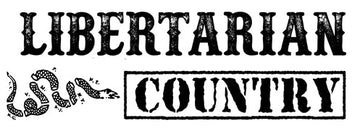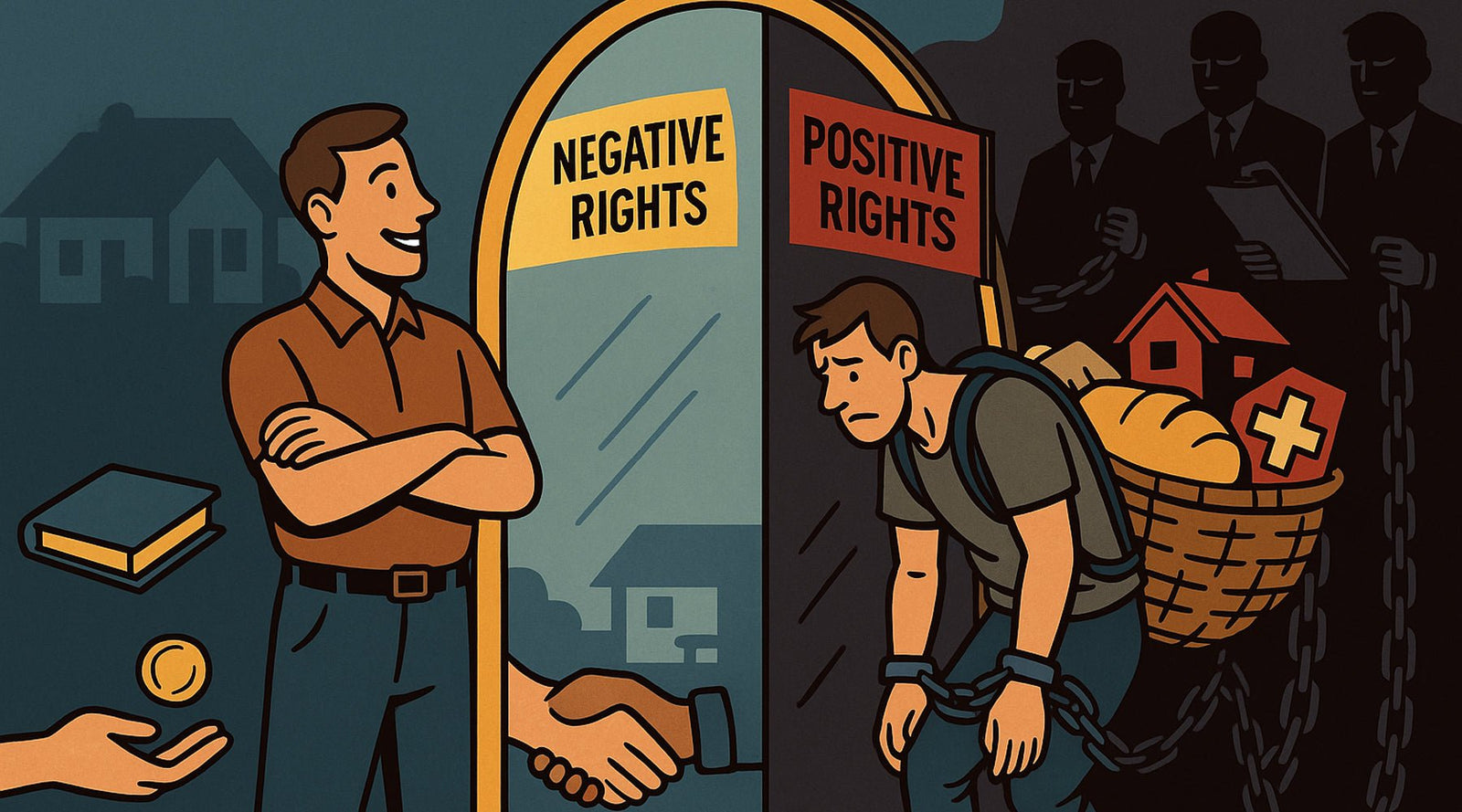The libertarian movement has long been built on a bedrock principle: individual liberty. At its heart, this means you own yourself, you control your life, and no one has the moral right to aggress against you. That principle has historically been tied to a philosophy of negative rights—rights that protect you from harm or coercion.
But what about positive rights? The “right to” something, such as food, healthcare, or housing? Should libertarians ever accept them? This question cuts to the core of modern debates about justice, survival, and the proper role of government.
Negative Rights: The Classic Libertarian Stance
Negative rights are rights that require only non-interference. They say:
-
No one may kill you.
-
No one may steal from you.
-
No one may censor your speech or take away your property without due process.
These rights don’t demand that anyone else act on your behalf; they simply demand restraint. They’re universal and equal — you don’t need to qualify for them, and your neighbor doesn’t lose theirs if you exercise yours.
This is why libertarians have historically rejected positive rights: because to enforce them, government must violate someone else’s negative rights.
Positive Rights: The Appeal and the Danger
Positive rights, by contrast, require others to provide you with something. A “right to healthcare” means doctors must serve you. A “right to housing” means property owners or taxpayers must furnish shelter. A “right to food” means farmers or grocers must produce for you.
On the surface, this sounds compassionate. After all, what good is a “right to life” if you can starve to death in a world of plenty? Doesn’t survival itself demand some kind of guaranteed baseline?
But here lies the libertarian objection: if my right to food obligates someone else to work for me or surrender their property, then they no longer own themselves. Positive rights, once enforced, turn other people into resources.
The Coercion Problem
The danger of positive rights is not theoretical — it’s historical.
-
In the Soviet Union, the government guaranteed jobs, food, and housing as “rights.” The result was rationing, bread lines, and famines that killed millions.
-
In Maoist China, similar promises of guaranteed subsistence led to disastrous central planning and the Great Famine.
-
Even in milder welfare states, attempts to secure positive rights often spiral into ever-growing bureaucracies, higher taxation, and decreased liberty for all.
Every “positive right” enforced by government requires force: the seizure of property, redistribution of wealth, or regulation of labor. Libertarians argue that this is not a path to justice, but a pathway to coercion.
The Case for Some Positive Rights
Still, some thinkers within or adjacent to libertarianism argue for limited positive rights. Their reasoning:
-
A right to life without the ability to sustain life may be hollow. If people are starving while food rots in warehouses, can we really call this a free society?
-
Desperation can fuel crime and chaos. A society that allows large numbers to slip into abject misery may ultimately undermine liberty for everyone.
-
Minimal safety nets might prevent larger government intrusions down the road.
These arguments don’t claim that government should guarantee prosperity, but that some basic floor may be necessary to make liberty meaningful in practice.
Libertarian Responses
The libertarian reply usually takes three forms:
-
Voluntarism Works Better
Human beings have always relied on family, community, churches, charities, and mutual aid to take care of those in need. When government crowds these out, it doesn’t eliminate poverty — it eliminates compassion. Voluntary, decentralized aid respects liberty and tends to be more efficient. -
Property Rights Create Abundance
The “world of plenty” that critics reference exists because people are free to innovate, trade, and own property. Enforced positive rights erode that very system of abundance. In other words, the pie is large precisely because we don’t guarantee slices. -
Positive Rights Create Slavery by Degrees
If your survival requires someone else’s forced labor, then you own part of them. That undermines the entire moral foundation of liberty. A right that requires coercion is not truly a right — it’s a claim on someone else’s life.
A Possible Middle Ground?
Some libertarians entertain the idea of contractual positive rights or minimal safety nets. For example:
-
You may enter into contracts that guarantee you healthcare, housing, or food (through insurance, co-ops, or community organizations). These are binding agreements but remain voluntary.
-
Some minarchist libertarians argue that a minimal “safety net” may be tolerated if it prevents greater tyranny, as long as it remains strictly limited and doesn’t become a cradle-to-grave entitlement state.
But even here, the guiding principle is voluntarism and restraint — not the assumption that the state can or should provide for everyone.
The Libertarian Bottom Line
The libertarian tradition stands on this principle: Rights are about freedom from coercion, not guarantees of goods or services.
That doesn’t mean libertarians are indifferent to suffering. Quite the opposite — libertarians believe prosperity and compassion thrive best when people are free to create wealth, form communities, and voluntarily help those in need.
Positive rights, enforced by the state, inevitably lead to coercion. Negative rights, by contrast, create the framework where human flourishing, cooperation, and true compassion can thrive.
Conclusion
Should libertarians accept some positive rights? The mainstream answer remains no, because the enforcement of positive rights always requires the violation of negative rights.
But the debate is worth having — especially in a time when people are searching for both liberty and security. Libertarians must be ready to explain why freedom itself is the best guarantee of human well-being, and why a society built on voluntary cooperation is more humane than one built on forced entitlements.
Keep exercising your freedom of expression in style! 👇



